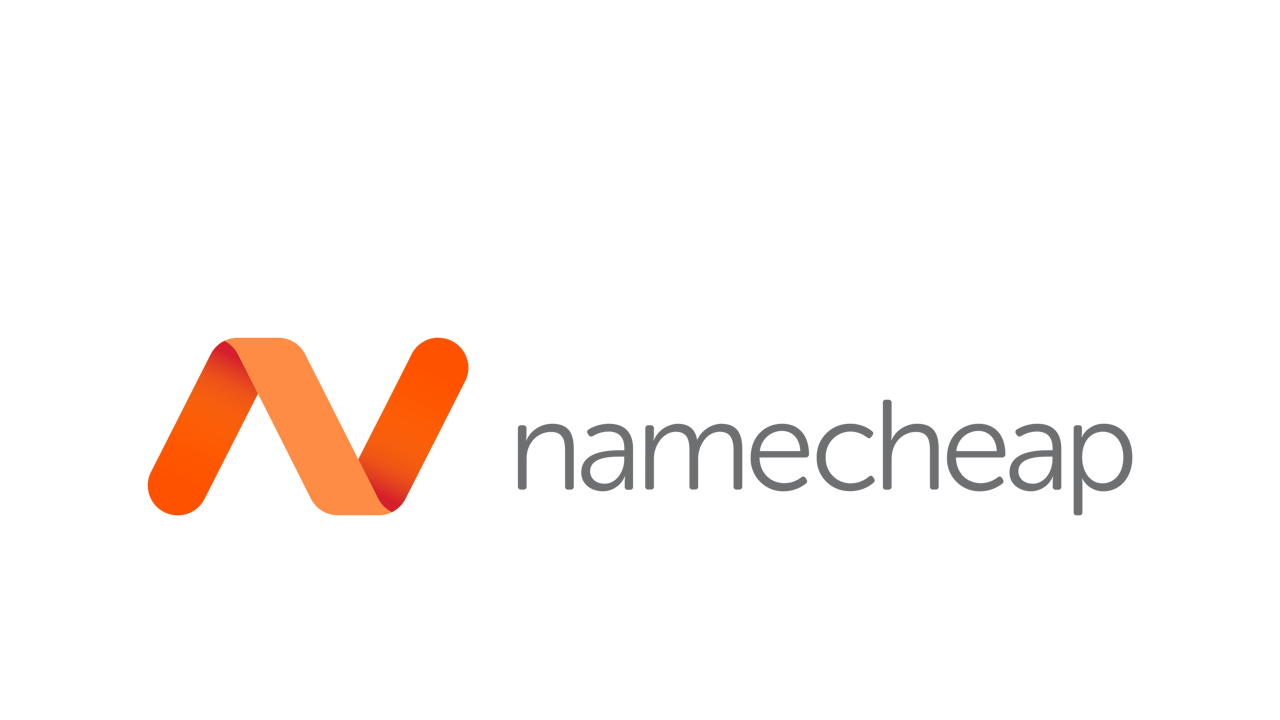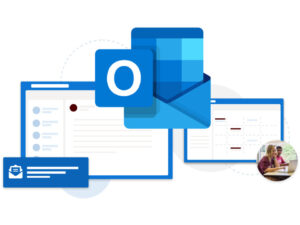Namecheap Review 2025: Affordable, Reliable, and Feature-Packed
Namecheap is a trusted domain registrar and web hosting provider offering affordable and reliable solutions for individuals, startups, and growing businesses. Known for its competitive pricing, excellent customer support, and user-friendly services, Namecheap has become a go-to platform for those looking to establish their online presence with ease.
This review explores why Namecheap is a strong choice for domain registration, web hosting, SSL certificates, and more, and how its commitment to security, privacy, and customer satisfaction sets it apart from other providers.
Discover why Namecheap is one of the best options for domain registration, web hosting, and online security services.
What types of hosting does Namecheap offer?
Choosing the right hosting service is a critical first step when building an online presence. Namecheap, known primarily for domain registration, also provides various hosting solutions tailored to different needs, from personal blogs to enterprise-level websites. Below, we’ll dive into each type of hosting Namecheap offers, detailing features, ideal use cases, and potential benefits.
1. Shared Hosting
Shared hosting is an economical choice where multiple websites share the resources of a single server. This type of hosting is well-suited for beginners, small businesses, and those with minimal traffic demands.
Key Features:
- Easy Setup: No complex configurations are needed, making it ideal for users with little to no technical experience.
- Cost-Effective: With shared resources, shared hosting is budget-friendly.
- Free Website Builder: Namecheap includes a free website builder, making it easy to create and customize websites.
- Security Protections: Free SSL certificates and anti-DDoS protection are included for basic security.
- Access to cPanel: Users get access to cPanel, an intuitive control panel for managing website settings.
Plans Available:
- Stellar: Ideal for one website, offering 20 GB of storage.
- Stellar Plus: Unlimited websites and unmetered SSD storage.
- Stellar Business: Suitable for eCommerce or business sites with 50 GB of SSD storage and fewer users per server for better performance.
Best For: Beginners, small business websites, portfolios, and personal blogs.
2. WordPress Hosting
For users focused on building and managing WordPress sites, Namecheap offers optimized WordPress hosting solutions through their EasyWP service, which streamlines WordPress installation and management.
Key Features:
- One-Click Setup: WordPress installation takes just a few seconds, making it accessible to anyone.
- EasyWP Dashboard: An intuitive, custom-built dashboard to manage WordPress sites without needing cPanel.
- Optimized Performance: Specifically tuned for WordPress with pre-configured caching and Content Delivery Network (CDN) support.
- Automatic Backups and Security Scans: Daily backups and security scans protect your site’s data.
- Free SSL: Each plan includes a free SSL for added security.
Plans Available:
- EasyWP Starter: For up to 50,000 visitors/month with 10 GB storage.
- EasyWP Turbo: For up to 200,000 visitors/month with 50 GB storage.
- EasyWP Supersonic: For high-traffic sites, handling up to 500,000 visitors/month with 100 GB storage.
Best For: WordPress users, bloggers, and small-to-medium-sized businesses looking for hassle-free, managed WordPress hosting.
3. VPS Hosting (Virtual Private Server)
VPS hosting provides users with a dedicated portion of a server, making it ideal for those needing more resources and control than shared hosting can offer. It’s a good choice for websites that have outgrown shared hosting or require custom configurations.
Key Features:
- Dedicated Resources: More CPU, RAM, and storage are allocated per user, ensuring stable performance.
- Root Access: Full root access allows complete control over server configurations, software installations, and custom applications.
- Scalability: VPS resources can be scaled as your business grows.
- Choice of Management: Namecheap offers both managed and unmanaged VPS options to fit different experience levels.
Plans Available:
- Pulsar: Provides 2 GB RAM, 2 CPU cores, and 40 GB SSD.
- Quasar: Includes 4 GB RAM, 4 CPU cores, and 120 GB SSD for larger websites.
Best For: Developers, medium-sized businesses, and users with moderate to high-traffic websites needing greater customization and control.
4. Dedicated Server Hosting
Dedicated hosting offers an entire server solely for your website or business needs. This option is best suited for large-scale projects, high-traffic websites, and resource-intensive applications.
Key Features:
- Exclusive Resources: All server resources are dedicated to your site, providing optimal performance and speed.
- Full Control: Full administrative access for advanced configuration and security customization.
- Enhanced Security: Isolation from other sites means higher security, which is essential for handling sensitive data.
- 99.99% Uptime Guarantee: Provides maximum uptime for mission-critical applications.
Plans Available:
Dedicated server plans vary widely based on needs and budget, with options that include various amounts of RAM, CPU power, and storage configurations. Servers can be custom-built according to specific requirements.
Best For: Large businesses, high-traffic sites, eCommerce platforms, and applications requiring top-tier performance and security.
5. Reseller Hosting
Reseller hosting is a service for users who want to sell hosting to their own clients, such as web design agencies or developers. Namecheap provides a scalable platform that allows for selling shared hosting to other customers.
Key Features:
- White-Label Branding: Resellers can customize their packages and present them under their brand name.
- cPanel and WHM Access: Includes WHM (Web Host Manager) for managing multiple cPanel accounts for clients.
- Scalability: Allows easy scaling of client accounts without the need for additional hardware.
- Free cPanel Migration: Free migration from another cPanel account.
Plans Available:
- Nebula: For smaller resellers, with 30 GB storage and unlimited bandwidth.
- Galaxy Expert: More resources with 90 GB storage, ideal for a larger client base.
- Universe Pro: The highest level for resellers, with 150 GB storage and unlimited bandwidth.
Best For: Web designers, developers, and agencies looking to provide hosting services under their own brand.
6. Email Hosting
Namecheap also offers dedicated email hosting for those seeking professional email services without full web hosting. This option is excellent for small businesses or personal use that require branded email addresses.
Key Features:
- Personalized Email Addresses: Professional domain-based emails for business credibility.
- Spam Protection: Advanced spam filters to keep inboxes clean.
- Cross-Device Syncing: Synchronization across all devices, ensuring accessibility from anywhere.
- Affordable Plans: Namecheap’s email hosting is budget-friendly with plans for personal and business use.
Plans Available:
- Starter: 5 GB for emails and 2 GB for files.
- Pro: 30 GB for emails and 15 GB for files, suited for more active business users.
- Ultimate: 75 GB for emails and 30 GB for files, ideal for enterprises or larger teams.
Best For: Small businesses, freelancers, and individuals needing affordable professional email services.
Domain Registration with Namecheap: Features and Pricing
1. Affordable Pricing and Extensive TLD Options
Namecheap is known for its budget-friendly pricing, especially for popular domain extensions like .com, .net, and .org. Additionally, they offer an extensive selection of Top-Level Domains (TLDs) and country-code TLDs (ccTLDs) like .co, .us, .uk, and .ca, as well as niche and trendy extensions such as .io, .app, and .online.
- Pricing Examples:
- .com: Typically starts around $8.88 to $12.98 per year, depending on current promotions.
- .net: Around $11.98 to $15.98 per year.
- .org: Usually between $10.98 and $14.98 per year.
- Promotions: Namecheap frequently offers discounts on new registrations, renewals, and transfers, helping users secure a domain at a low cost.
2. Free WHOIS Privacy Protection
For added privacy, Namecheap includes free WHOIS privacy protection with eligible domains. This feature masks personal information, such as name, address, and email, from public WHOIS records. By keeping this information private, Namecheap enhances security and protects users from spam, unwanted solicitations, and potential identity theft.
- Lifetime Privacy: WHOIS privacy protection remains free for the lifetime of the domain, making Namecheap an attractive option for privacy-conscious individuals and businesses.
3. Domain Management Features
Namecheap’s platform provides an intuitive domain management dashboard, allowing users to control DNS settings, renew domains, and access other critical settings with ease.
- Easy DNS Management: Quickly update DNS records for smooth domain configuration with hosting services.
- Domain Forwarding: Allows users to forward their domain to another URL, useful for redirecting traffic to specific web pages or social profiles.
- Bulk Domain Management: A convenient feature for users managing multiple domains, allowing batch updates and efficient organization.
4. Secure and Simplified Domain Transfers
Transferring a domain to Namecheap is straightforward, and they frequently offer discounted rates for domain transfers. This process comes with a one-year renewal, so users keep their current domain expiration and get an additional year at a competitive price. Namecheap’s domain transfer service is compatible with most TLDs and ccTLDs.
- 24/7 Support: Users have access to support during the transfer process for assistance with any potential issues.
- Automated Transfer Process: Transfers are streamlined, often taking as little as five days, and the process can be initiated from Namecheap’s dashboard.
5. Security Features: Two-factor authentication and SSL Certificates
In addition to WHOIS privacy protection, Namecheap offers other security features to safeguard domain owners:
- Two-Factor Authentication (2FA): This added security layer protects accounts from unauthorized access, especially important for those managing multiple domains or valuable web assets.
- SSL Certificates: Available at affordable rates, SSL certificates can be added to any domain to enable HTTPS, protecting user data and boosting website credibility. Basic SSL certificates start at $5.88/year.
6. Domain Market and Auctions
Namecheap also provides access to its marketplace, where users can buy and sell domain names. The domain auction platform allows users to list high-value or memorable domains for sale and bid on domains from other users, potentially finding unique names not available through standard registrations.
7. Renewal and Expiry Policies
Namecheap offers automatic renewal options to help users avoid the risk of losing a domain due to missed renewal deadlines. Renewal notifications are also sent well in advance to keep users informed. Domains are held in a grace period after expiration, providing a buffer for those who may have forgotten to renew.
- Grace Periods: Most domains have a 30-day grace period after expiration, and some extensions may include additional redemption periods.
Customer Support at Namecheap: Quality and Availability
1. 24/7 Live Chat Support
Namecheap offers round-the-clock live chat support, enabling customers to get immediate help regardless of time zones or business hours. The live chat feature is highly responsive, with average wait times usually under a few minutes, making it convenient for resolving urgent issues.
- Technical and Sales Support: Live chat can address a range of inquiries, from technical support for hosting issues to sales-related questions about choosing the right domain or hosting plan.
- Experienced Representatives: Namecheap’s support team is knowledgeable and well-trained, often able to provide solutions directly within the chat session.
2. Extensive Knowledge Base and Tutorials
For those who prefer to troubleshoot independently, Namecheap’s knowledge base is a robust resource, filled with step-by-step articles, guides, and video tutorials. Covering topics like domain management, website setup, DNS configurations, and SSL installation, the knowledge base is a valuable tool for beginners and experienced users alike.
- Self-Help Guides: Clear, detailed guides allow users to solve common issues independently.
- Updated Content: The knowledge base is regularly updated to include the latest features, changes, and troubleshooting tips, keeping information current.
3. Ticket-Based Support System
For more complex issues that may require in-depth attention or investigation, Namecheap provides a ticket-based support system. This is particularly useful for handling technical issues or billing inquiries that cannot be quickly resolved via live chat.
- Response Time: Ticket responses typically arrive within 24 hours, and Namecheap strives to resolve queries efficiently.
- Detailed Support: The ticket system allows users to document their issues thoroughly, ensuring a streamlined process for resolving complex problems.
4. Social Media and Community Support
Namecheap has an active presence on social media platforms like Twitter and Facebook, where they engage with customers, provide updates, and share relevant information. For users who prefer social media interactions, this can be a convenient support option for quick questions or updates on service status.
- Real-Time Updates: Outages, system maintenance, and updates are often posted on social channels, keeping users informed.
- Community Involvement: Namecheap also fosters a sense of community, encouraging users to engage and ask questions that are sometimes answered by other experienced users.
5. Status Updates and Incident Reporting
Namecheap’s status page provides real-time information about the health of their services, including hosting servers, DNS systems, and email services. This page is updated regularly, giving users an overview of any issues or maintenance activities that may impact their website or domain services.
- Transparency: Customers are kept informed of ongoing incidents or scheduled maintenance, adding transparency to the service.
- Incident History: Users can view past incidents to understand the frequency and resolution of technical issues, adding trust in the platform’s reliability.
6. Support for Transfers and Migration
For those transferring domains or hosting services to Namecheap, the support team offers guided assistance to ensure a smooth migration process. This can be particularly helpful for users unfamiliar with DNS settings or hosting transfers.
- Domain Transfer Assistance: Clear instructions and hands-on support are available for transferring domains from other providers.
- Website Migration: Namecheap often includes free website migration for new customers, helping them transition without downtime or data loss.
7. Customer Support Quality and User Feedback
Namecheap is known for its friendly, patient, and knowledgeable support team. According to user feedback, the support quality consistently ranks high in terms of satisfaction. Support agents are trained to handle technical queries with professionalism, often going the extra mile to resolve issues comprehensively.
- High Satisfaction Rate: Many users report positive interactions, with particular praise for Namecheap’s willingness to help with technical issues.
- Commitment to Improvement: Namecheap continually refines its support offerings, incorporating user feedback to enhance its support experience.
8. Limitations and Areas for Improvement
While Namecheap’s support is strong overall, there are a few areas for potential improvement:
- No Phone Support: Namecheap does not offer phone support, which may be a drawback for users who prefer speaking directly with a support representative.
- Response Times During High Demand: During peak times, users may experience slightly longer wait times for live chat responses, although these delays are generally brief.
Who Should Use Namecheap? Best use case.
1. Small Business Owners and Startups
For small businesses and startups looking to establish an online presence, Namecheap offers cost-effective domain registration and hosting plans. The competitive pricing allows businesses to set up their domains and websites without exceeding their budgets, while features like free WHOIS privacy and easy domain management provide added security and convenience.
- Affordable Hosting Plans: Shared hosting and EasyWP plans are ideal for small businesses with minimal budgets.
- SSL Certificates and Email Services: Basic SSL certificates and professional email options help businesses project a credible online presence.
Best Use Case: A startup founder can register a domain, set up a professional email, and launch a website on EasyWP to create a polished online presence on a limited budget.
2. Bloggers and Content Creators
Namecheap’s WordPress hosting service, EasyWP, is perfect for bloggers and content creators looking to build an audience with minimal technical hassle. EasyWP is a managed WordPress hosting solution, so Namecheap handles the technical aspects, such as updates, backups, and performance optimizations, allowing bloggers to focus on content creation.
- One-Click WordPress Installation: Simplifies the setup process, making it beginner-friendly.
- Flexible Plans for Growth: EasyWP offers scalable resources that can grow alongside a blog’s traffic.
Best Use Case: A travel blogger could quickly launch a WordPress blog using EasyWP and take advantage of the platform’s scalability to handle traffic growth as their audience expands.
3. Freelancers and Solopreneurs
Freelancers and solopreneurs who need a professional online portfolio or website will find Namecheap’s shared hosting plans a convenient, low-cost option. These plans provide ample resources for simple websites, landing pages, and portfolios while being budget-friendly and easy to manage.
- Domain and Hosting Bundles: Simplifies setup for freelancers who need a streamlined, all-in-one solution.
- Email Hosting: Freelancers can also set up a professional email domain, adding credibility to client communications.
Best Use Case: A freelance graphic designer can set up a personal website on Namecheap’s shared hosting to showcase their portfolio, integrate contact forms, and link their professional email.
4. E-commerce Entrepreneurs
For e-commerce entrepreneurs, Namecheap’s VPS and dedicated server options offer the power and customization needed to run an online store. These plans provide greater control and resources to handle high traffic and integrate e-commerce applications effectively. Additionally, Namecheap’s SSL certificates offer an affordable way to secure online transactions, a critical aspect for any e-commerce site.
- VPS and Dedicated Hosting Options: These advanced hosting plans provide the scalability required by e-commerce platforms.
- Security Features: SSL certificates and WHOIS privacy protect sensitive customer information and establish trust.
Best Use Case: A small online store owner can utilize Namecheap’s VPS hosting to ensure smooth website performance and scalability while adding SSL certificates to secure transactions.
5. Web Developers and Agencies
For web developers and agencies managing multiple client websites, Namecheap’s reseller hosting packages are designed to accommodate such demands. Reseller hosting allows developers to create separate hosting accounts for each client, simplifying site management while offering the potential for added revenue streams.
- Reseller Hosting Plans: Provide the flexibility to host multiple sites under separate accounts, making it easier to manage client projects.
- Bulk Domain Management: Namecheap’s platform supports bulk actions, streamlining domain purchases and renewals for agencies.
Best Use Case: A web development agency could use Namecheap’s reseller hosting to efficiently host and manage client websites under a single dashboard, while also offering domain registration services to clients.
6. Domain Investors and Speculators
For those looking to invest in or speculate on domain names, Namecheap’s domain marketplace and auction features are a great fit. Domain investors can browse and bid on domains or list their own for sale. Additionally, Namecheap’s free WHOIS privacy helps investors keep their identity anonymous while maintaining domain ownership.
- Domain Marketplace: A platform to buy, sell, and auction domain names, which is ideal for domain investors.
- Low-Cost Transfers: Namecheap provides affordable options for transferring domains from other providers, often with promotional rates.
Best Use Case: A domain investor can use Namecheap’s platform to acquire niche or high-value domains and leverage the marketplace to list domains for resale.
7. Nonprofits and Educational Institutions
Namecheap supports nonprofits and educational organizations by offering discounted domain registrations, hosting, and SSL certificates. This support can help institutions establish a professional and credible online presence while keeping costs low, a crucial factor for organizations with limited budgets.
- Discounted Pricing: Namecheap frequently provides special rates for nonprofits, helping them get online affordably.
- Domain Security and Privacy: WHOIS privacy and security features help protect the organization’s reputation and user information.
Best Use Case: A nonprofit organization could use Namecheap’s services to set up a secure website to accept donations, share its mission, and engage with the community.
Why Choose Namecheap?
Namecheap is a well-rounded provider that caters to a wide range of users, from individuals and small businesses to bloggers, developers, and domain investors. It’s an especially strong choice for those looking for budget-friendly hosting and domain registration with a focus on simplicity and reliable customer support. If affordability, user-friendliness, and privacy are top priorities, Namecheap is an excellent choice.
For users who anticipate the need for extensive resources, custom configurations, or enterprise-grade features, evaluating Namecheap’s high-performance hosting plans against dedicated enterprise hosting providers may be worthwhile. Nonetheless, for most personal projects, small businesses, and those who need a solid online presence without overspending, Namecheap provides exceptional value and quality.
Final Verdict: Namecheap is an outstanding choice for cost-conscious users, beginners, and small to medium-sized websites. With its affordable pricing, strong security measures, and easy-to-use interface, Namecheap offers a reliable platform for building and managing an online presence.













Post Comment